Irpin education center in Ukraine aids recovery and learning of children with special needs amid the war
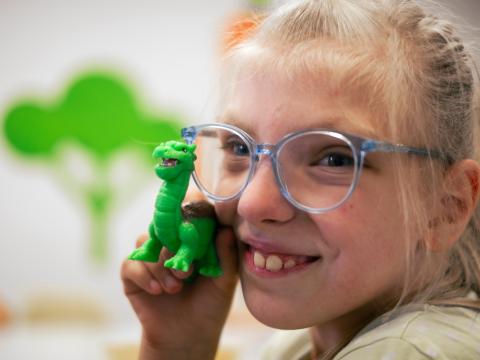
Irpin is a quiet town just 10 kilometers outside Kyiv, Ukraine’s capital city. Built in the woods, it is surrounded by greens, several pine trees found in every family’s backyard. Close to the city, fresh air, affordable housing – for years it has been a favorite among young families and people moving to Kyiv.
“I always wake up early, five or six in the morning. That day I checked my phone and read a message saying the war had begun. I thought it was some kind of sick joke. Then I opened my window and saw a fighter jet flying overhead. Then there was another one.”
Iryna is sitting slightly cramped at a children’s school desk. Right next is her daughter Sofia, comfortable in her usual seat in the front row. It's lunch break for the children. The classroom is unusually quiet. Children's voices are distant but loud in the backyard.
“We didn’t want to leave. Every night we’d go to a nearby basement – our building didn’t have one. On March 4th, 2022, I looked around the basement and realized that my daughter was the only child remaining. I packed our bags, and we left early the next day.”
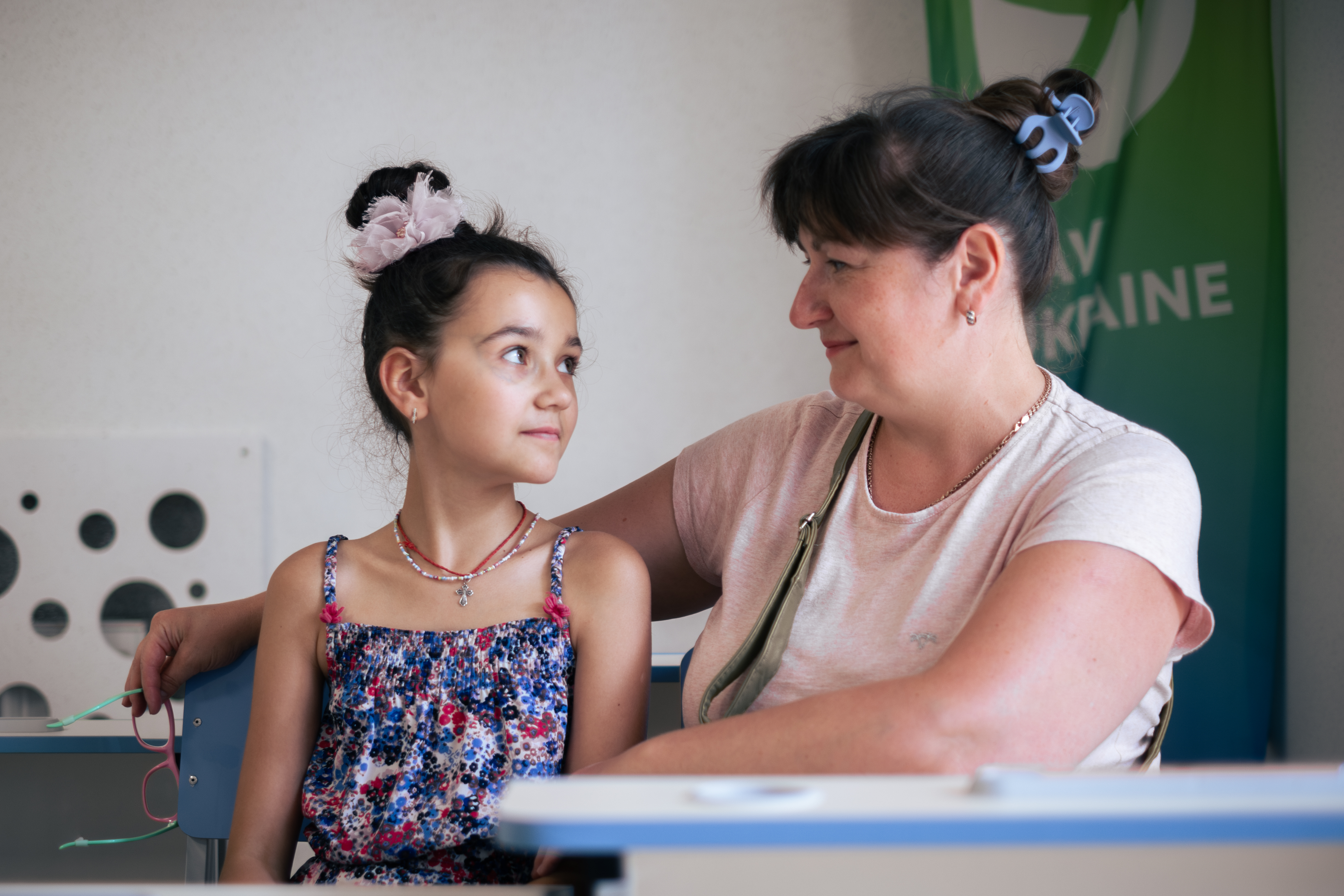
Sofia and a dozen other children just finished their Ukrainian language lesson. It is summer holiday season, but Sofia, one of the top students in her class, still comes to this educational center every other day. For her these catch-up classes supported by World Vision and funded by the European Union, are a chance to stay ahead in her studies, but mostly to socialize and stay occupied during the summer.
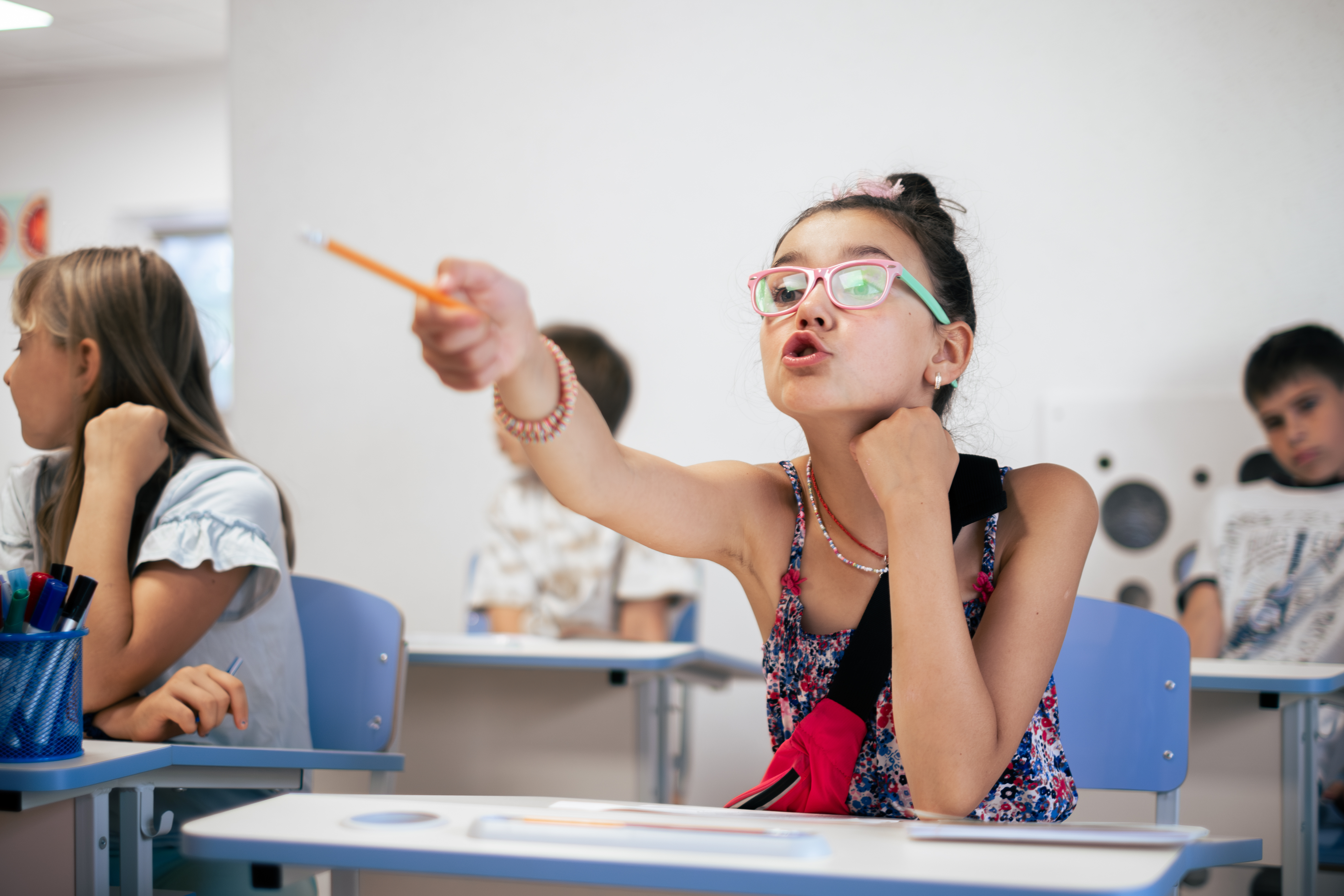
The center operated by Save Ukraine, a local NGO and World Vision’s partner, is a three-story building surrounded, like most houses in the town, by decades-old pine trees. Natalya Kravchenko, the director of the day center, points to scaffolding on one of the walls. That is the future elevator for children with disabilities.
Another construction is further in the backyard: the center is expanding, and that is where the physical rehabilitation center for children and adults will be. Between the main building and the construction site is a bright green lawn with a playground, trampoline and, a little to the side, five mobile homes for internally displaced families.
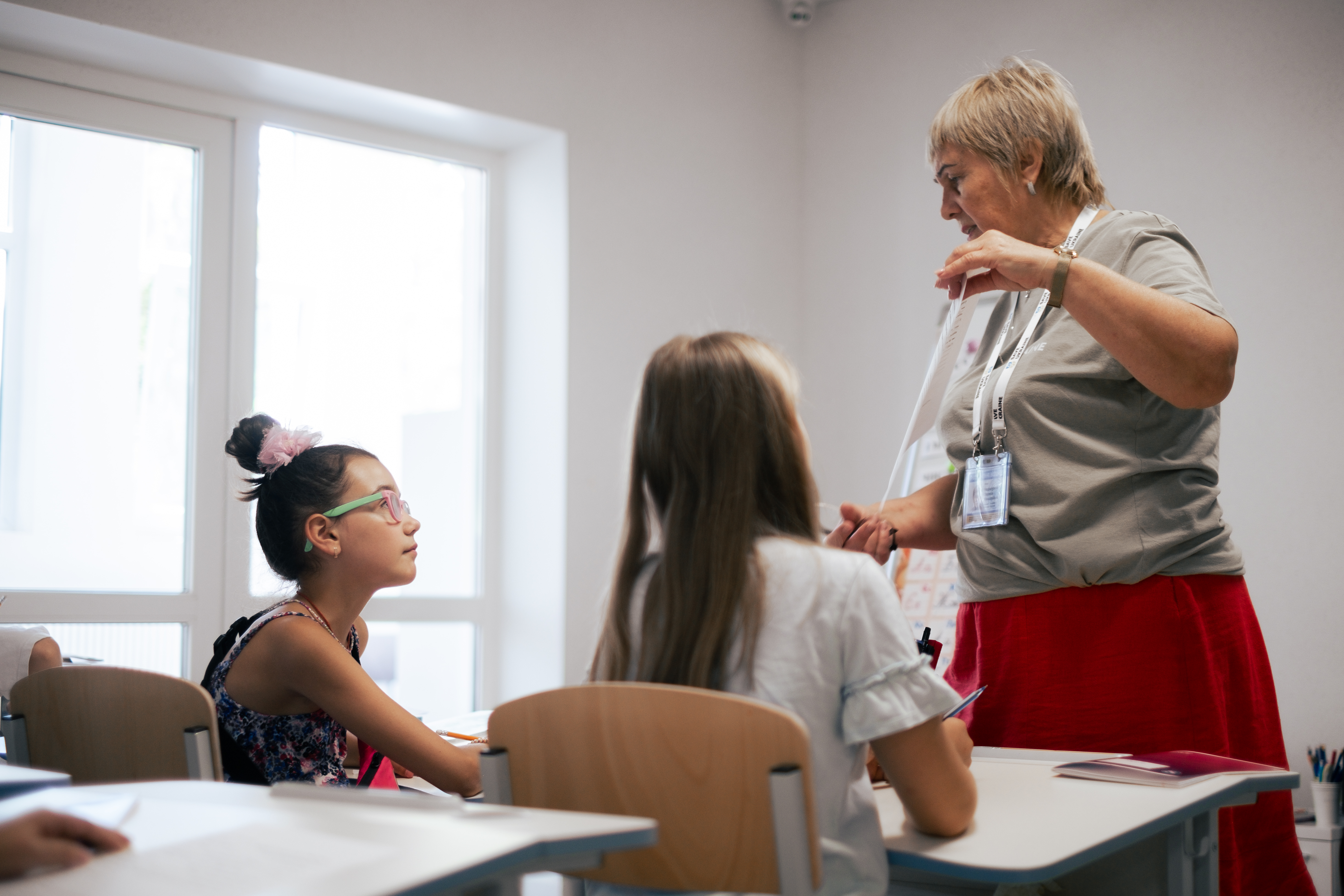
The Ukrainian language group shares space with another group of children. These are their special-needs peers who are having a correction class with a psychologist, and another Irpin native, Olha Chernyshuk. “We aim to create an inclusive environment. Children with special educational needs learn to be included in society, develop their skills and learn from non-special needs children. Those, in turn, learn to help, learn that there are different children in this world, and develop tolerance”, Chernyshuk says.
“The groups are mixed. If a child in a wheelchair is introduced to the class, non-special needs kids will go out of their way to help. They’ll help navigate the environment, help them write or paint, if a child struggles to hold a pen or a brush. They’ll ask if they can help all the time.”
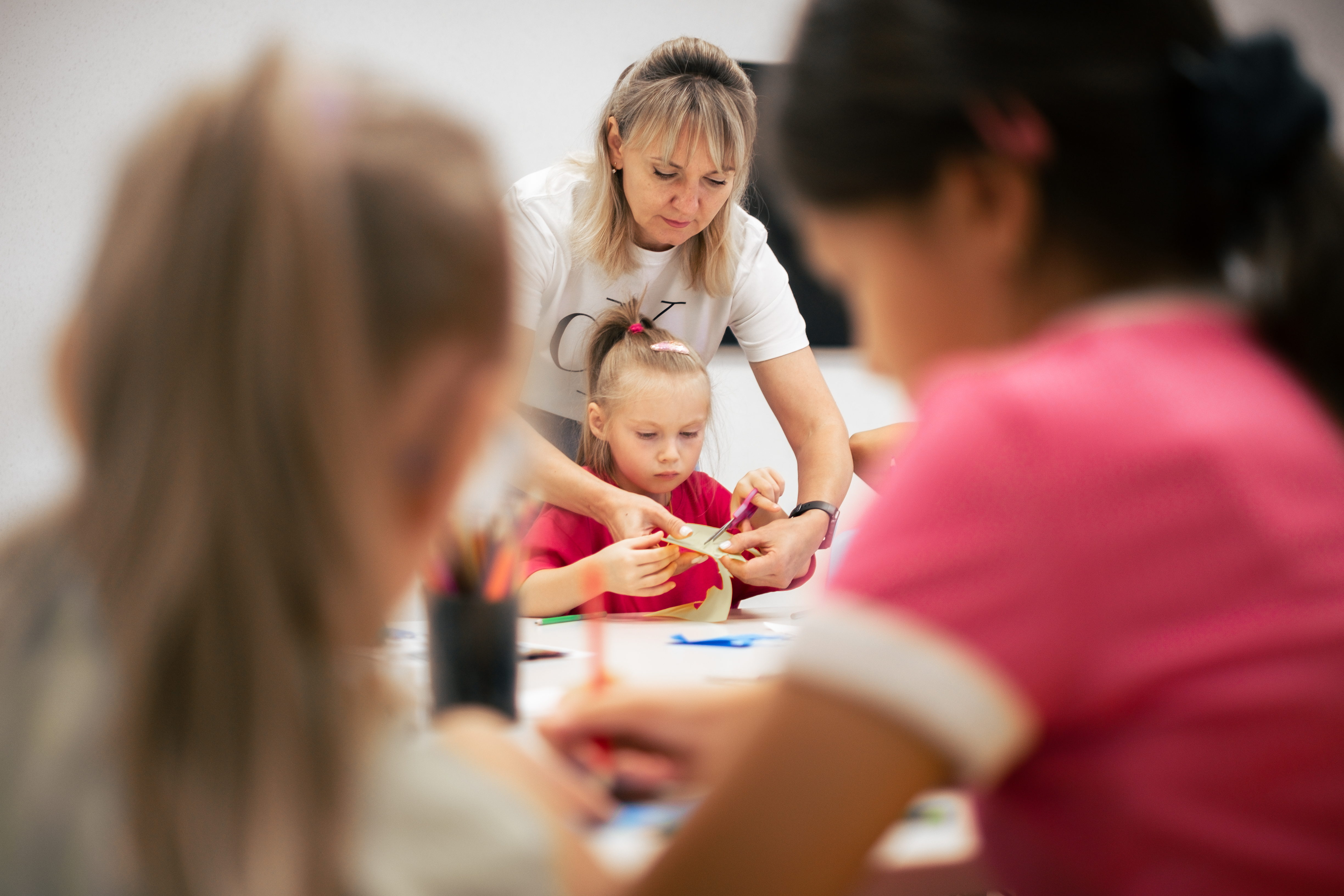
Working with children with disabilities is one of the main focuses of the center. “I am a mother of a child with a disability and a teacher. I see this as my mission”, says Natalya Kravchenko.
“The day center serves children with disabilities, children suffering neglect and just children from the local community. Group and individual classes, catch-up classes, physical therapy and rehabilitation. Currently we have 71 children with disabilities and 54 from the Irpin community.”
Most of the children here are also internally displaced – according to estimations over 20,000 people, or up to a third of Irpin’s population, have moved here in the past 2,5 years escaping their hometowns close to the active conflict line.
In early 2022 Irpin saw its share of fighting and destruction. However, now it is actively rebuilding and becoming its former quiet suburban self. Still, around any corner you may find whole neighborhoods badly damaged by artillery and missile strikes.
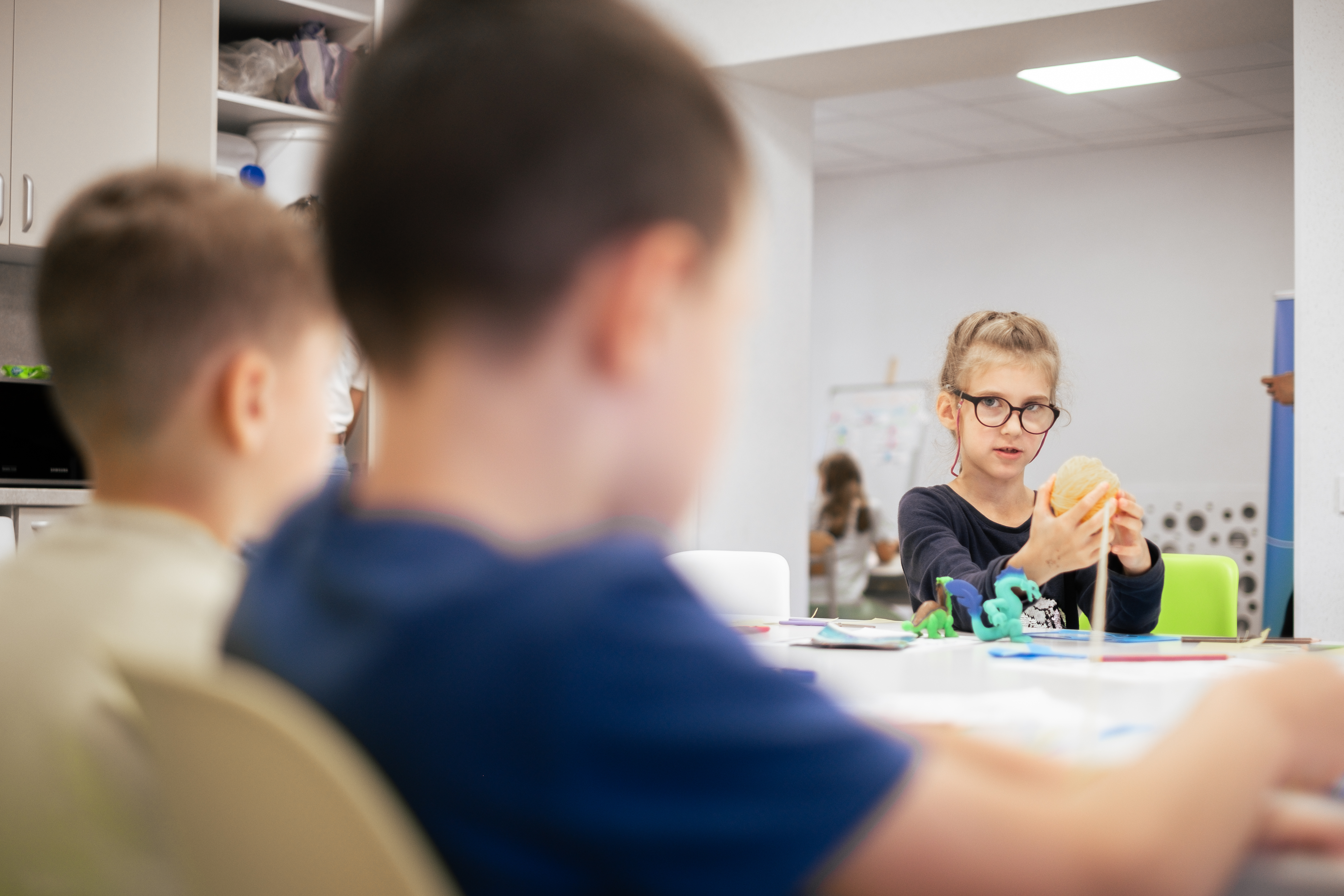
Among the newcomers are some of the center’s staff. Larysa Nedoluzhko, in her 60’s now, is a Ukrainian language teacher at a school in Irpin, as well as at the day center. However, she spent her entire life teaching Ukrainian at a local school in the village of Olhinka, Donetsk Oblast, in the East of Ukraine.
When war came, the same school became a refuge: “Before evacuating from my hometown in March 2022 I spent days hiding in the school basement. I had COVID and was sitting there with a fever listening to rockets flying overhead.” Some version of this story you can hear from almost anyone in Irpin.
Teaching at the center is Larysa’s first experience educating children with special needs. She says she is actively developing new teaching techniques and trying to learn from colleagues like Olha, the psychologist. “Teaching in groups may be difficult, but individual lessons are very effective. We sit together, I can listen to them, and they will listen to me”, she says. However, access to education remains a struggle for all Ukrainian children, for a few years now.
“First there was COVID, now constant alarms, multiple times a day sometimes. With every alarm children go to the bomb shelter in the basement. Our school’s shelter is quite nice, it’s safe, it’s spacious, it’s clean, and children have places to seat. But organizing classes in a basement full of children is impossible.”
With all this, educational centers like this become even more important. “We test children’s knowledge at the beginning and at the end of the three-month course. I see improvement in almost every child”, says Nedoluzhko. “As a mother of a special needs child, I can tell you there are no real alternatives to our center in Irpin”, says Natalya Kravchenko. “The closest you can find correctional classes and physical therapy is in Kyiv. And none of those are free.”
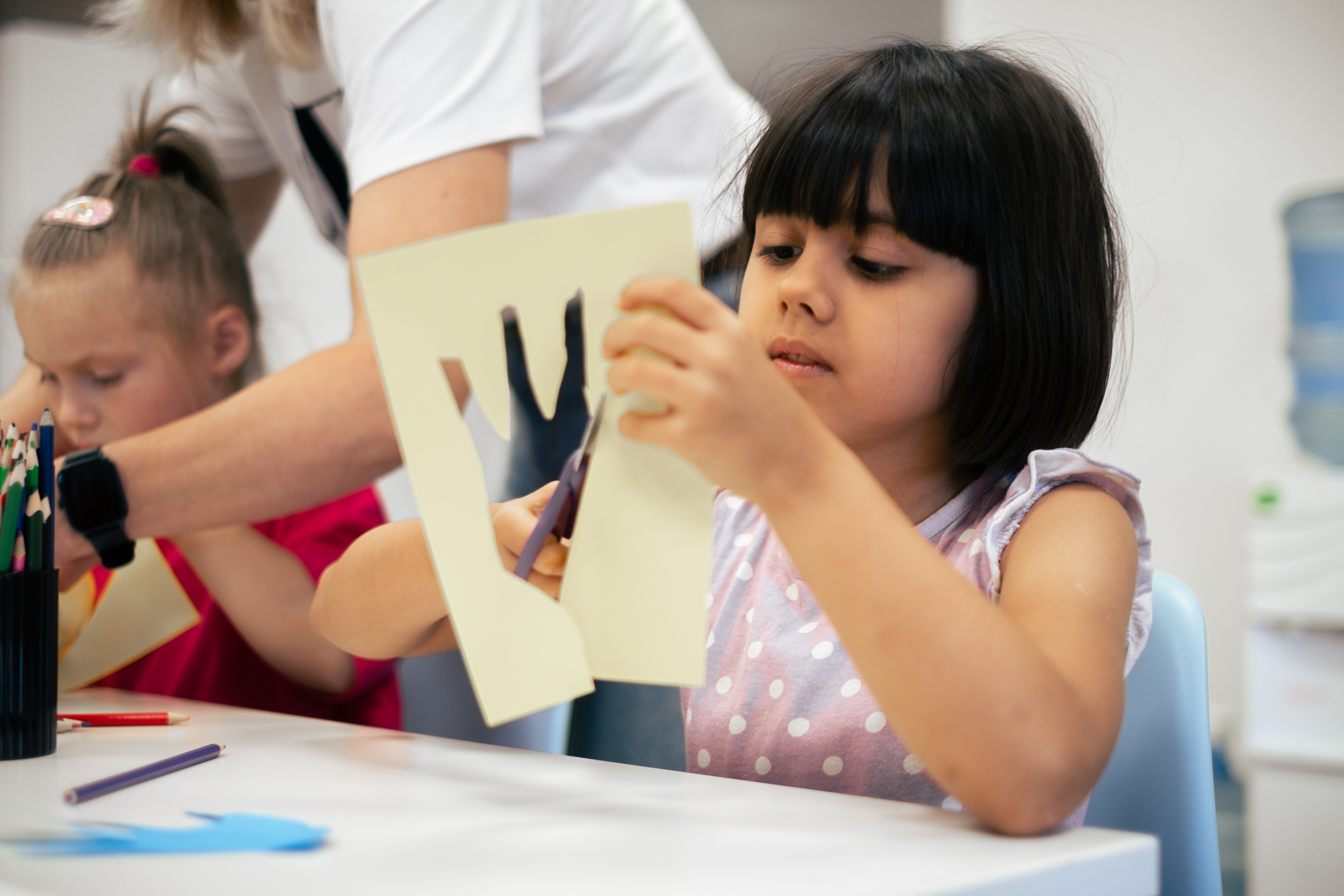
Story and photos by Oleksandr Shpygunov, Communications Officer